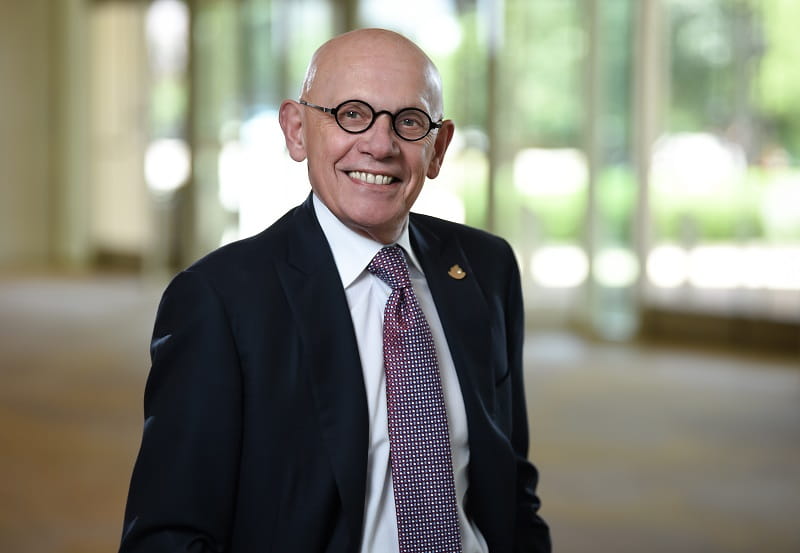Father's death motivated AHA chairman to help others lead healthier lives
By American Heart Association News

As chairman of the board of the American Heart Association, Jim Postl relies on a lifetime of business acumen to help the organization run smoothly. But deep down, his approach to the job is intensely personal.
Fifty-two years ago, his father died suddenly of a heart attack at age 54. Almost three years ago, his wife had a heart attack out of the blue and survived. Both experiences fuel his commitment to the AHA.
"To lose your dad at such a young age was a life-altering experience. It makes you think about health in a different way," Postl said. "My wife's heart attack was relatively mild, fortunately. But once again, it's a reminder of how heart disease affects all of us."
Postl's dedication to fighting cardiovascular disease earned him the American Heart Association Award for Distinguished National Leadership, presented this month in Dallas.
His role as 2017-2019 chairman comes after nearly 20 years of volunteering for the AHA in a variety of capacities. The former president and CEO of Pennzoil-Quaker State Company began fundraising for the Heart Ball and Heart Walk and became a member of the AHA's Board of Directors in 2010.
He has also served as chairman of the AHA's SouthWest Affiliate and co-chaired its International Committee. He currently serves on a number of AHA executive committees.
"Being chairman is a very rewarding role," he said. "I've worked for some great corporations in my time, but what's going on now at the AHA equals anything I've been involved in. It's become an extraordinarily innovative organization."
For example, he said he's excited by AHA's Institute for Precision Cardiovascular Medicine and One Brave Idea, a five-year, $75 million research project funded by a partnership of the AHA, Verily and AstraZeneca.
"These emerging strategies are focusing on finding a cure for heart disease," he said. "And that would be world-changing."
As science evolves, so must the AHA, Postl said.
"We have to make sure that we have the right kinds of people, with the right kinds of training and skill sets, to continue this tremendous trajectory," he said.
Even as scientists find new ways to fight cardiovascular disease, Postl thinks it's imperative for the public to become better educated on how to live longer, healthier lives. The importance of exercise and reducing dietary sodium are two areas often overlooked.
"I think that when people are young, they consider themselves immortal and invulnerable and don't exercise or take other steps that will result in good cardiovascular health," he said. "They often only begin to pay attention when they've developed … high blood pressure or diabetes or obesity."
A native of Canada and the son of an Austrian immigrant, Postl grew up in a family without much money. He said the experience shaped his positive attitudes about prosperity, life and health. He tries to stay healthy by getting regular checkups, bicycling and playing tennis, and eating a diet rich in fruits and vegetables and low in red meat.
"Life is a series of corners," he said. "You don't know what's around that next corner, so you need to be ready to take advantage of the opportunity or be ready to address the challenge. You need to work hard to make yourself better and don't settle for anything less than your best."
If you have questions or comments about this story, please email [email protected].





